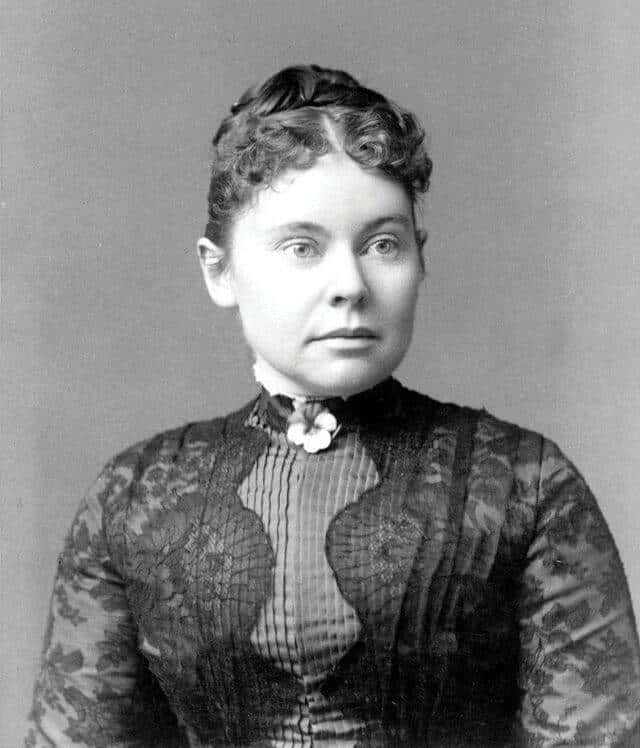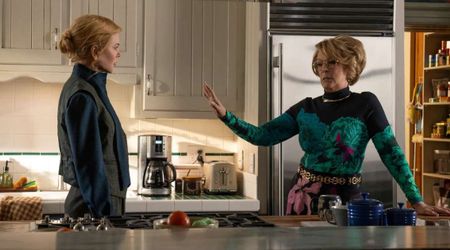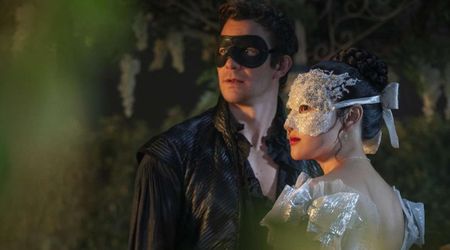'The Curious Life and Death of...' Episode 1: Was Lizzie Borden acquitted because she was a rich White woman?

On August 4, 1892, the bodies of Andrew and Abby Borden were found in two separate rooms in the Borden household -- both of them had been violently hacked to death. Andrew Borden was found on a couch in the downstairs sitting room, his head struck 10 to 11 times by a hatchet-like weapon, whereas Abby was found upstairs in a bedroom, lying facedown in a congealed pool of blood. The main suspect for the double murder was Andrew's daughter, Lizzie Borden. The 125+ years old mystery still fascinates the public, perhaps as much as it did so back in the 19th century.
Smithsonian Channel's new series, 'The Curious Life and Death of...', looks at different historical mysterious deaths to analyze what really happened through the evidence available and the help modern technology can provide. The first episode takes a deep dive into the Borden double murder case. After a highly publicized trial, Lizzie Borden was acquitted. Not only was the evidence presented circumstantial, but the jury who deliberated to acquit Lizzie were also all men. In the Victorian era, the picture of a petite, demure, well-dressed White woman wielding an ax to kill her parents might just have been laughable.
When we look at the case today as host Dr Lindsey Fitzharris does, it seems quite likely that Lizzie was, in fact, the killer of her parents. It was she who notified of Andrew's death in the sitting room, while the live-in maid, Bridget Sullivan, was resting in the attic room -- which meant that she possibly got the time to clean herself up after the murders and before calling for Bridget. There was no blood found on Lizzie at the time, but despite this, she was arrested.

Lizzie and her sister, Emma, had a clear motive -- they worried that Abby had married their father for his money. While they lived in a modest house, the sisters wanted to live in a more fancy area of Fall River, Massachusetts, known as The Hill, where they moved to after the trial was over. The sisters were also reportedly displeased that Andrew was buying property for Abby's relatives. Money seems to be the clearest motive and Lizzie lived it up after she was acquitted -- she got herself a car and a chauffeur according to Dr Fitzharris, and she went on multiple trips to New York to go to Broadway.
One of the reasons another suspect was in the picture -- potentially a male foreigner -- was because of the area the Borden household was located in. For the male jurors, it seemed impossible that Lizzie -- a devout, church-going, wealthy, White woman could have possessed the hatred to do such gruesome acts. After Lizzie was arrested, women's groups rallied to Lizzie’s side, especially the Women’s Christian Temperance Union and suffragists. Lizzie’s supporters protested that at trial she would not be judged by a jury of her peers because women, as non-voters, did not have the right to serve on juries.
During the trial, Lizzie was painted as a "well-bred" Victorian woman and she was asked by her lawyers to be dressed in black. When newspapers reported on Lizzie's appearance, they would stress that she did not have the "Amazonian proportions" required to commit the murders and that she was "quiet" and "modest." Presented in such a way, the all-male jury which consisted of farmers and tradesmen from outside Fall River, Lizzie was acquitted of all charges.
'The Curious Life and Death of...' airs on the Smithsonian Channel on Sunday nights at 9/8c.










